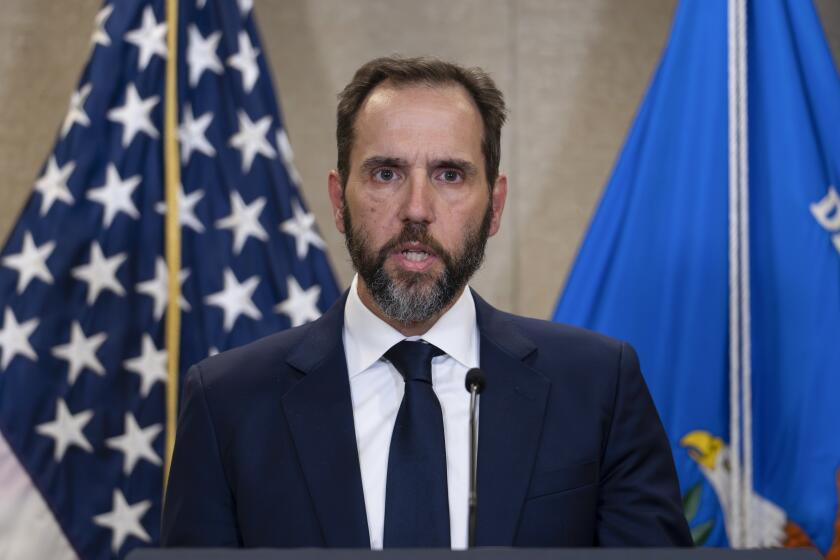More delays? Supreme Court was wrong to put off Trump immunity decision

- Share via
The Supreme Court announced on Wednesday that it will consider Donald Trump’s claim that as a former president he enjoys immunity from prosecution for alleged crimes connected to his efforts to overturn the 2020 election. By taking the case and scheduling oral argument for the week of April 22, the court has further complicated the timeline for a Trump trial, which a district judge originally scheduled for March 4.
It’s in the national interest that Trump face a jury as soon as possible. Special Counsel Jack Smith recognized the urgency of the situation when he asked the justices on Dec. 11, to rule in the immunity case quickly, and before the appeals court weighed in. The justices unwisely rejected that request on Dec. 22.
Special counsel Jack Smith has the right to ask the Supreme Court to expedite the former president’s case. Time is of the essence because Trump could be the GOP’s 2024 presidential nominee.
The U.S. Court of Appeals for the District of Columbia Circuit heard arguments in the immunity case on Jan. 9, and on Feb. 6 handed down a long and learned decision eviscerating Trump’s outlandish immunity argument. The appeals court concluded that “former President Trump has become citizen Trump, with all of the defenses of any other criminal defendant. But any executive immunity that may have protected him while he served as president no longer protects him against this prosecution.”
It’s understandable that the justices would want to weigh in themselves. But they should have agreed to Smith’s request for expedited consideration. Having failed to do so, they should resolve to hand down their decision as soon as possible after the oral argument in April. It would be a deeply unsatisfactory outcome if the court ruled against Trump’s immunity claim but did so too late to ensure that a trial would proceed — and a jury would have its say — before the November election.
Further delay by the court would give a new and ominous meaning to the axiom that justice delayed is justice denied, though in this case it would be the nation that would be denied justice.
More to Read
A cure for the common opinion
Get thought-provoking perspectives with our weekly newsletter.
You may occasionally receive promotional content from the Los Angeles Times.










